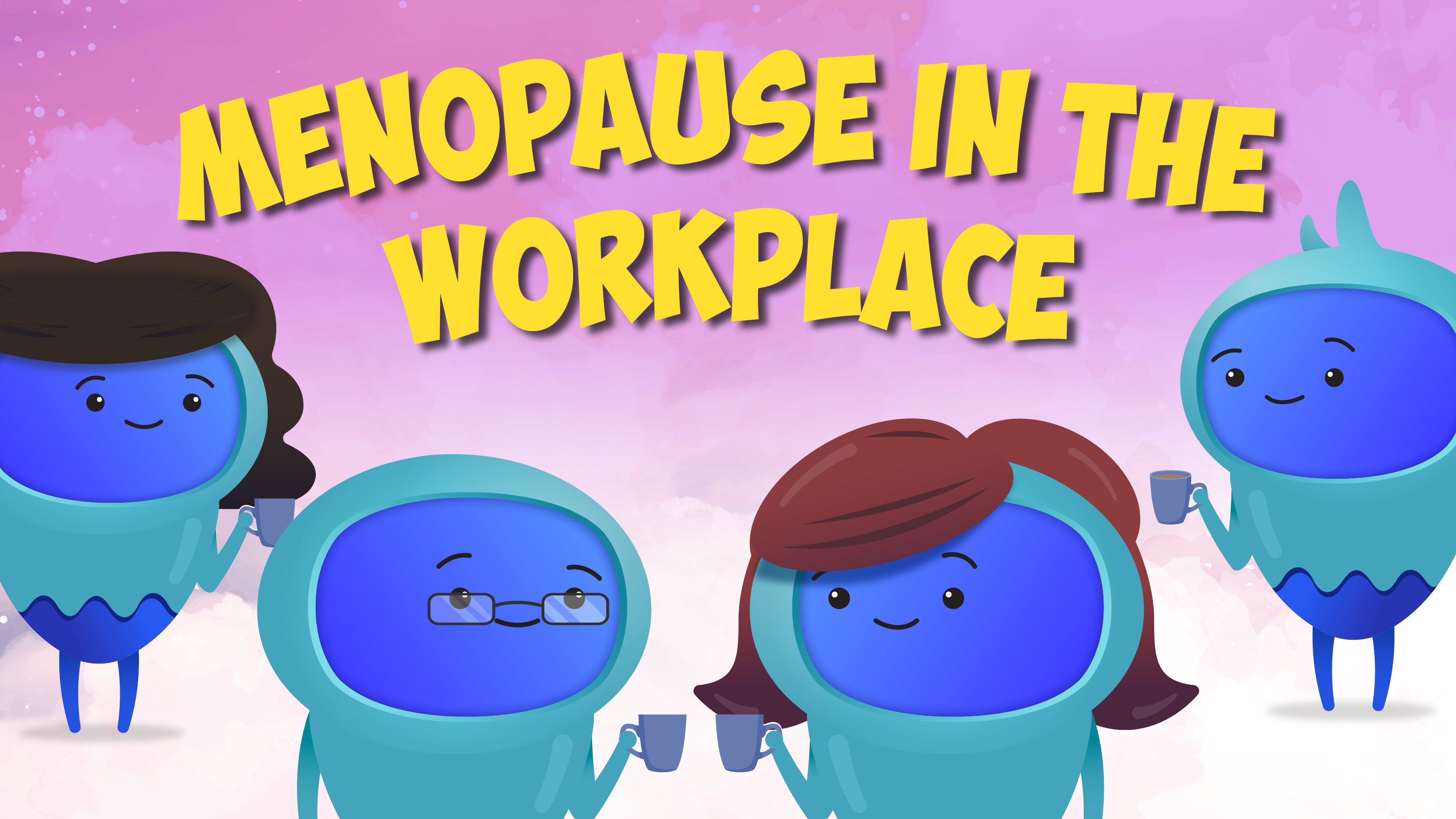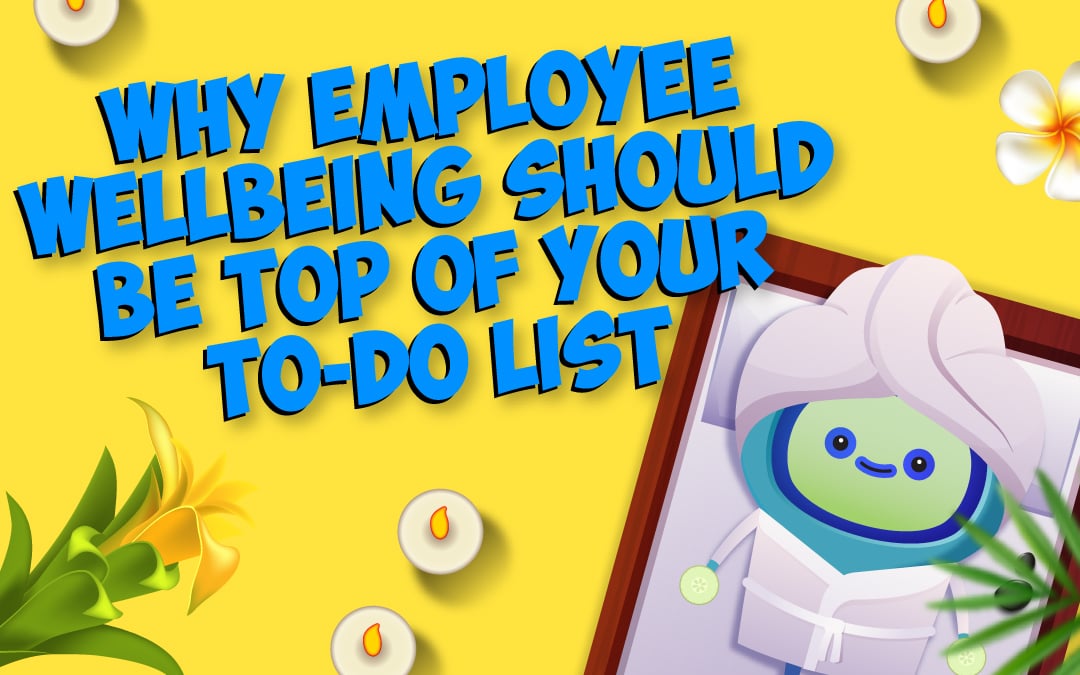We can all be impacted by menopause. You may have heard that it only affects a certain cross-section of the population, but that’s simply not true. It could be someone you manage, a partner, a family member, or a friend. But talking about menopause can be difficult because affected people may feel embarrassed; it’s wrongly considered too personal to discuss.
But why should something so personal be discussed in the workplace? Well, according to BUPA, 900,000 employees in the UK have quit their jobs because of it. So, it’s imperative that it’s discussed at work, and is a subject that needs to be handled sensitively by employees and employers alike.
Supporting those affected at work can help to increase staff retention, reduce recruitment costs, and improve productivity. But more importantly, it can increase happiness and wellbeing, and ensure a more diverse workforce.
We’ve created this blog to support our courses on the matter, and to explain what menopause is and what you can do in your workplace to support those who are affected.
What is menopause and what are common symptoms?
People often refer to “the menopause” negatively. But it’s simply a biological change. Menopause is when a person stops having periods and is no longer able to conceive naturally. It’s a natural stage of life when the individual’s oestrogen levels decline. Most individuals go through it between the ages of 45 and 55, but symptoms can begin months before their periods stop and can last for a few years afterwards.
'Perimenopause’ is the phase leading up to menopause when hormone balance starts to change. During this time, the person may start to suffer with menopause symptoms but is still having periods. The symptoms last on average for four years, but for some can last much longer.
There is a range of Menopause symptoms, including some that probably aren’t relevant to work and the workplace. We discuss them here not only for others to help identify them but also so those who experience these symptoms can self-diagnose. After all, if symptoms are common, they might not have considered that the cause is menopause. Here are what is widely agreed to be the most common:
- Hot flushes
- Night sweats
- Mood swings and anxiety
- Vaginal dryness (no need to blush, this is natural, though unlikely to affect people at work)
- Difficulty sleeping
- Losing interest in sex (again, this probably won’t come up around the workplace)
- Difficulty remembering things and concentrating, sometimes referred to as ‘brain fog’
The key with symptoms though is to remember that everyone is different. Symptoms can fluctuate and be felt to varying degrees so it’s important to take a flexible approach and check in regularly with each person individually. You’re clearly not going to notice some of these in the workplace, and it’s not appropriate to ask about them.
Why is it important to talk about Menopause?
Did you know; menopausal individuals are the fastest-growing demographic in the workplace? Many people may be struggling to manage the psychological and physiological changes their bodies are experiencing.
Symptoms of menopause are clearly personal and can feel embarrassing to talk about openly. So, it’s not a huge surprise that historically it’s been a taboo subject. But that needn’t be the case.
Often a few simple changes to the working environment can make a world of difference. Even just talking openly about menopause can reduce the impact of some symptoms. Think about it; if the people around you were all understanding about what you were going through, you’d have less anxiety, which in turn makes you sleep and feel better. Overall, it’ll enable people to continue performing well in their roles.
Symptoms such as hot flushes, night sweats, and increased anxiety have led to many people leaving their jobs while others are forced to take long-term absences from work to manage their symptoms. So, it’s critical that everyone understands how menopause affects the people directly experiencing it and impacts those around them, too.
Bringing menopause into focus in your workplace
Well-known brands and entities, such as the NHS, Royal Mail, and BBC have signed the Menopause Workplace Pledge. And more and more companies are making a commitment to recognise the impact of menopause in the workplace and the importance of providing support for individuals.
So, what can you do to raise awareness of menopause and support those affected in your workplace? Here are some simple, practical tips.
1. Create an open cultureIt’s important to create a culture where individuals feel comfortable telling you they’re struggling with menopause symptoms. Internal campaigns or sessions for staff are a great place to begin. The simpler you make it for people to open up, the easier it’ll be to identify the support they need.
Talk openly, positively, and respectfully about menopause and actively support and inform your employees to help foster this open culture.
2. Factor menopause into your learning strategy
It’s the modern world, and no one should feel uncomfortable talking about something, even sensitive subjects like menopause. That’s why we’ve launched a range of menopause eLearning courses, and to celebrate, we’re giving away our Menopause Awareness Course for free to help get the conversation started. But how do we do this? Well, the course raises awareness so you can play your part in creating a more inclusive workplace. It also covers the impact of menopause, the importance of awareness, explains related laws, dispels many myths and misconceptions, and outlines the menopause pledge.
The more supportive and knowledgeable everyone is about the range of menopausal symptoms, the less likely the individuals affected will feel embarrassed talking about them. The good news is there are some great resources available to support education on the topic.
Other new menopause courses in our eLearning library include Asking for support and Providing support – these courses were created to support you in building a menopause-friendly workplace.
3. Update your policiesUpdate your workplace policies to reflect the way you support menopause. Now that you’re taking positive action, menopause must be included in sickness and flexible working policies to consider symptoms such as night sweats and insomnia. Being flexible in response to individuals’ needs will help ensure they’re able to continue to perform to a high standard and get the best productivity and engagement from them.
4. Invest in support servicesInvesting in services that support individuals to enable them to perform at their best is equally important as your company culture, education, and policies. It's key that line managers can signpost their team members to the right services and understand what help and support these are able to provide.
Offerings such as virtual GP services and mental health helplines are incredibly valuable as the individual can access them anytime from any location to get support on a range of symptoms they’re experiencing.
Start the conversation about menopause at work
Attitudes are changing so that those with menopause don’t feel embarrassed discussing their problems. We all have a part to play in making them comfortable in the workplace. With over half of the working population experiencing symptoms of menopause in their lifetime, now’s the time to address the topic openly. These simple tips will help ensure individuals affected feel listened to sensitively and supported effectively in your workplace.
We’re all learning to discuss race, gender, and generational differences more openly at work and now menopause needs to be raised to the same level. Let’s take that step forwards to a more progressive workplace together.
Don't forget to grab your free eLearning course 'Menopause Awareness at Work' and help get the conversation going in your business.



.png)
